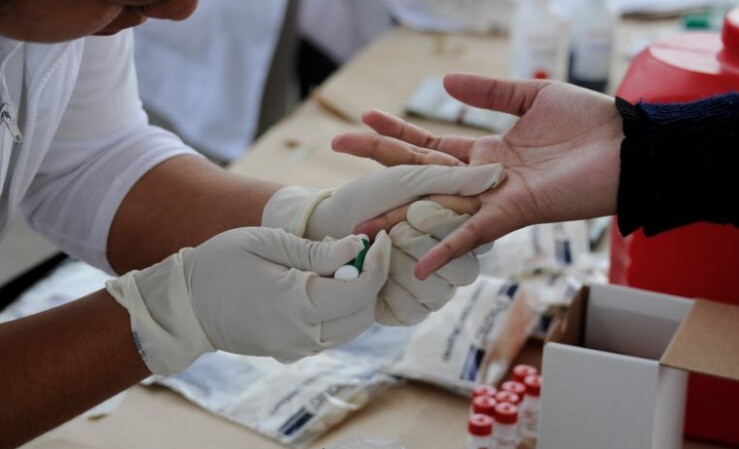
The Paraguayan Ministry of Public Health and Social Welfare (Ministerio de Salud Pública y Bienestar Social) and the Pan American Health Organization (PAHO) have launched a joint technical mission to strengthen response capacities for HIV and tuberculosis. This collaboration aims to accelerate the elimination of HIV, prevention of mother-to-child transmission of HIV, congenital syphilis, hepatitis B, and Chagas disease, as well as the management of advanced HIV, tuberculosis, and HIV/TB co-infection.
Experts from Paraguay, Brazil, and PAHO are participating in this collaboration, conducting in-depth assessments of local needs through visits to health services, hospitals, prisons, and community organizations in high-prevalence areas.
Paraguay has recently made significant progress, including the implementation of advanced HIV disease management, the introduction of cutting-edge tuberculosis diagnostic technology, the digitalization of diagnostic imaging, and the adoption of new tuberculosis treatment regimens.
However, challenges remain. New HIV infections have increased by 23% since 2010, and HIV-related deaths have risen by 68%. In 2024, 43% of diagnosed cases presented with advanced disease. Furthermore, there are gaps in the provision of HIV pre-exposure prophylaxis (PrEP), community-based testing, and comprehensive treatment for pregnant women with HIV or syphilis.
In a report released ahead of World Tuberculosis Day on March 24th, the World Health Organization (WHO) stated that tuberculosis remains one of the world's deadliest infectious diseases, with 1.25 million deaths and 10.8 million new cases reported in 2023 alone. It particularly severely affects vulnerable populations, such as people living with HIV, and warned that progress in tuberculosis control is being eroded by the COVID-19 pandemic and socioeconomic difficulties. This regression is particularly pronounced in the Region of the Americas.
The Paraguayan government and PAHO aim to address these issues and strengthen the national strategy for combating HIV and tuberculosis through this joint technical mission. Based on field visits and in-depth evaluations, the experts will provide tailored technical support and policy recommendations.
The main objectives of this collaboration are:
Eliminate HIV and prevent mother-to-child transmission: Reduce new HIV infections and prevent transmission to infants by strengthening testing and treatment for pregnant women, expanding access to PrEP, and reinforcing vertical transmission prevention programs.
Eliminate congenital syphilis, hepatitis B, and Chagas disease: Lower the incidence of these diseases through expanded prenatal screening and treatment, increased vaccination rates for newborns, and vector control.
Strengthen the management of advanced HIV, tuberculosis, and HIV/TB co-infection: Improve patient survival and quality of life by establishing rapid diagnosis and treatment systems, expanding patient management and support services, and enhancing the training and capacity of healthcare professionals.
Improve access for vulnerable populations: Strengthen testing and treatment support for populations with limited access to healthcare, such as those in prisons and marginalized areas, and expand the provision of tailored community-based services.
This joint technical mission is expected to be a significant turning point in Paraguay's response to HIV and tuberculosis. By combining international support with domestic efforts, Paraguay will be able to protect its citizens from public health threats and take a step further towards achieving the Sustainable Development Goals.
HIV/AIDS Situation in Paraguay: According to recent data from UNAIDS, the number of people living with HIV in Paraguay is steadily increasing, with new infections particularly rising among young people and men who have sex with men (MSM). While access to treatment is improving, many people living with HIV are still not being diagnosed and treated.
Tuberculosis Situation in Paraguay: Paraguay is classified as a medium-burden country for tuberculosis. Multidrug-resistant tuberculosis (MDR-TB) also remains a problem, and cases of HIV/TB co-infection are consistently reported. The COVID-19 pandemic has disrupted the provision of tuberculosis diagnosis and treatment services, raising concerns about a further deterioration of the situation.
Role of PAHO: PAHO is an international organization working to improve public health in the Americas by providing technical support, policy advice, and capacity building. It plays a crucial role as a partner in Paraguay's efforts to combat HIV and tuberculosis, sharing its expertise and experience and promoting international cooperation.
Global Tuberculosis Control Efforts: The WHO and the international community have set a goal to end the tuberculosis epidemic by 2030 and are promoting increased investment in diagnosis, treatment, and prevention, as well as the adoption of innovative approaches. However, the COVID-19 pandemic and geopolitical instability are expected to pose challenges to achieving these goals.
The collaboration between Paraguay and PAHO is an example that underscores the importance of international solidarity and cooperation in these challenging circumstances. It remains to be seen whether Paraguay can address the health challenges it faces and build a healthier future.
[Copyright (c) Global Economic Times. All Rights Reserved.]






























